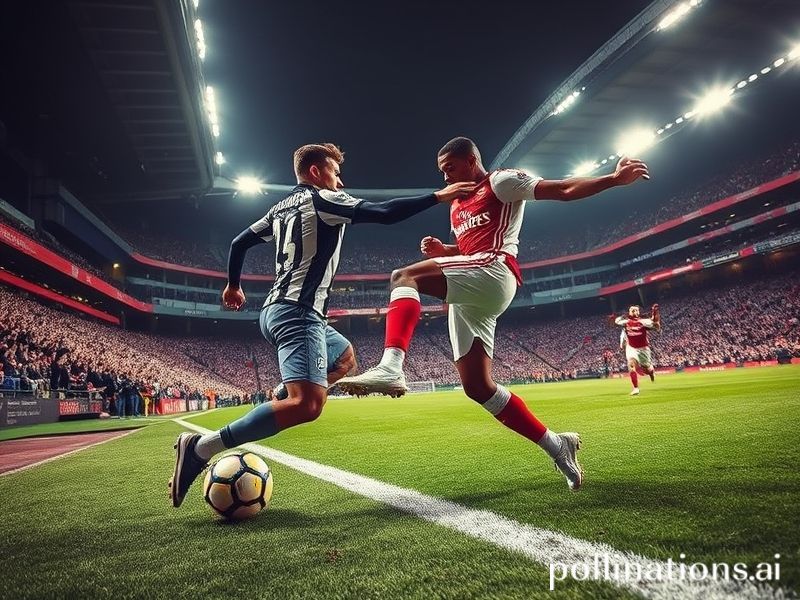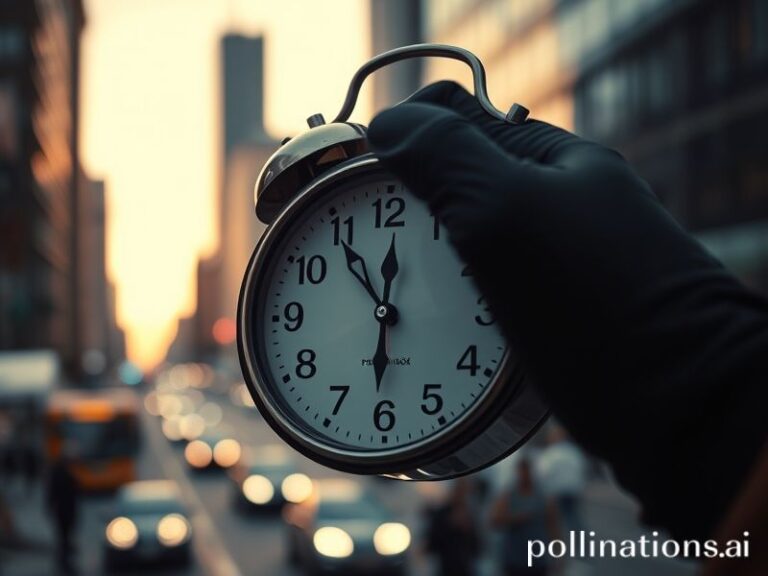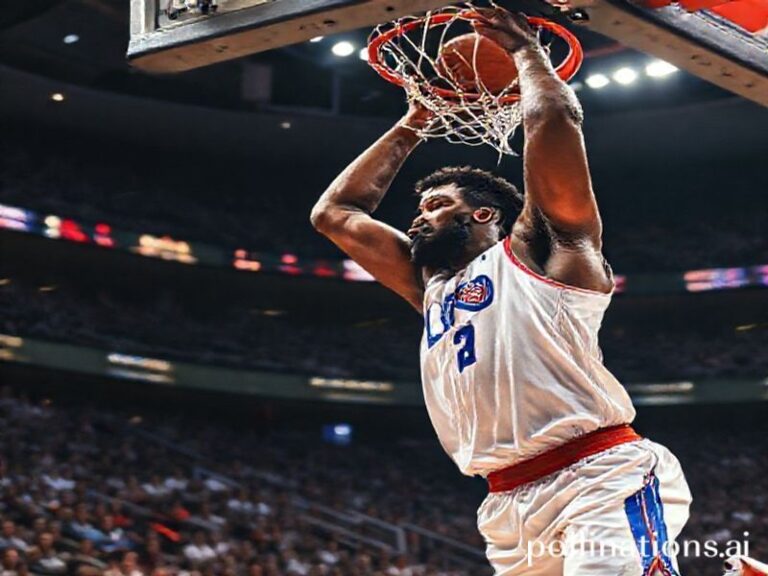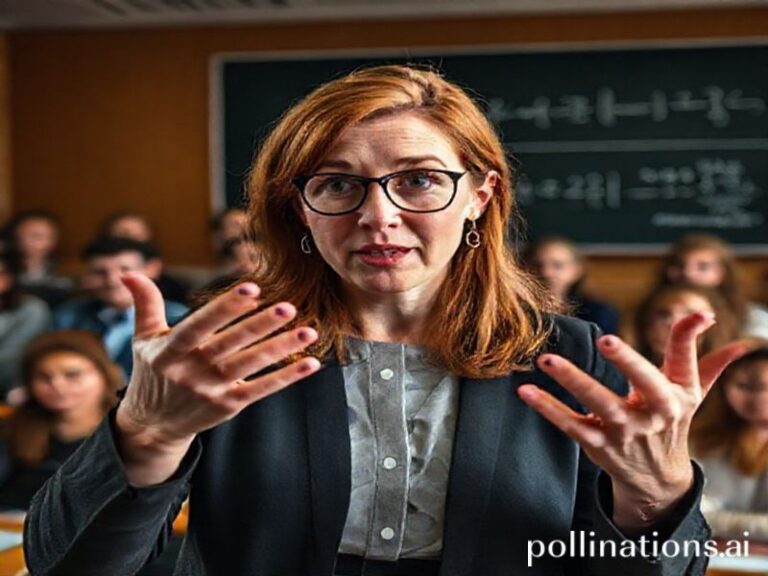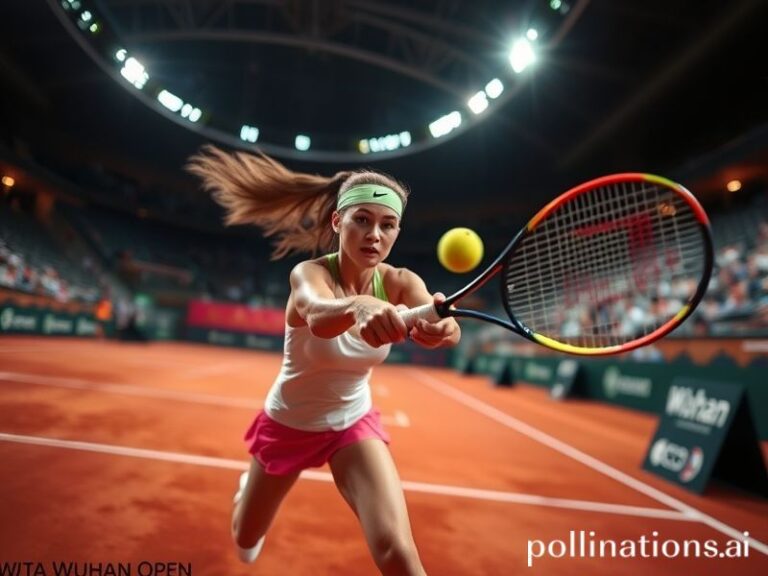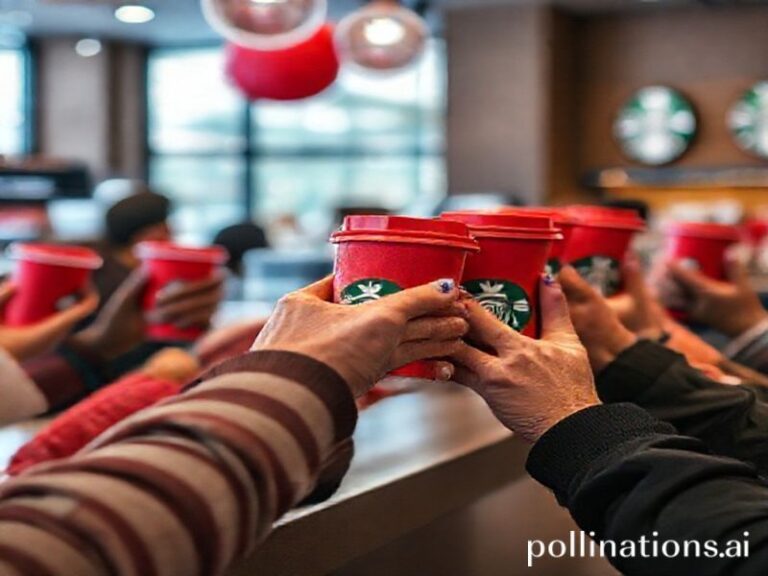Newcastle vs Arsenal: How a Rain-Soaked Saturday Became the World’s Most-Watched Geopolitical Puppet Show
Newcastle vs Arsenal: A Provincial Skirmish in the World’s Favorite Reality Show
———————————————————-
St James’ Park, Saturday night, floodlights slicing through the North-Sea drizzle like interrogation lamps in a Cold-War film. Two English clubs, 227 years of combined neuroses, and 52,000 locals who have learned—through bitter experience—that hope is best administered in homeopathic doses. Yet from Lagos living rooms to Laotian betting shops, the planet tunes in, because the English Premier League is the closest thing we have to a universally dubbed soap opera.
Why does a mid-season fixture between Newcastle United and Arsenal matter to anyone beyond Wearside and Islington? Simple: in the 21st century, geopolitics is played out in cleats. Arsenal’s owner is a US sports oligarch who also controls an NFL franchise—because nothing says “authentic football heritage” like a Kroenke. Newcastle, meanwhile, is freshly mortgaged to Saudi Arabia’s Public Investment Fund, a vehicle so transparent it makes Venetian blinds look opaque. The Magpies have gone from chronic underachievers to the world’s most literal sportswashing experiment, proving that if you can’t beat history, you can always buy a pressure-washer.
The match itself is a collision of existential strategies. Arsenal, top of the table at Christmas, play the kind of intricate passing football that looks terrific on heat-maps and mildly erotic in slow-motion replays. Newcastle, freshly infused with petro-cash and coached by a man who resembles a philosophy lecturer moonlighting as a nightclub bouncer, have reinvented themselves as high-press cyborgs. Somewhere between the third and fourth lung-busting sprint, you can almost hear the planet’s oil rigs humming in solidarity.
Global audience metrics are staggering. In Jakarta, ride-share drivers huddle around cracked phone screens; in Toronto, insomniac students stream illicit feeds between existential crises; in Qatar, executives watch from climate-controlled suites wondering if this is how Rome felt before the fall. The Premier League exports English anxiety with the same ruthless efficiency China exports electronics—except the warranty on hope expires faster.
Bookmakers in Manila report a 19 % spike in micro-bets on throw-in counts, proof that late-stage capitalism can monetise literally anything, including the direction a ball boy hurls an object. Meanwhile, European Union regulators quietly debate whether to classify Newcastle’s sponsorship deals as state aid or performance art. Spoiler: the lawyers win either way.
The game’s narrative arcs are Shakespearean, if Shakespeare had been forced to work under Financial Fair Play regulations. Arsenal’s young Bukayo Saka—born in Ealing, worshipped in Accra—embodies the diaspora dreams of three continents every time he cuts inside. Opposite him, Newcastle’s Bruno Guimarães tackles with the controlled fury of a man who knows his transfer fee could have paid off Paraguay’s external debt. Somewhere in the stands, a seven-year-old wearing a half-and-half scarf will ask his father why the referee is checking a screen, thus receiving his first lesson in VAR-assisted nihilism.
When the final whistle blows—likely after seven minutes of stoppage time added to accommodate geopolitical subtext—the result will ripple far beyond Tyneside. An Arsenal win keeps alive the fragile illusion that meritocracy still has a seat at capitalism’s table. A Newcastle victory sends the bookmakers scrambling and the Twitterati into performative outrage, hashtagging moral indignation between mouthfuls of ethically sourced avocado toast. Either way, the highlight reels will be packaged and shipped to 188 territories by sunrise, ensuring that tomorrow’s hangover is truly global.
And so we return to our living rooms, pubs, and refugee-camp television sets, united in the certainty that nothing unites humanity quite like dividing it into red and white stripes versus black and white. Someday the ice caps may melt and the servers may crash, but until then there will always be another fixture, another narrative, another reason to postpone thinking about the real world. Which, when you consider the real world, is probably the point.

